Expert urges public: Take care – guns aren't toys
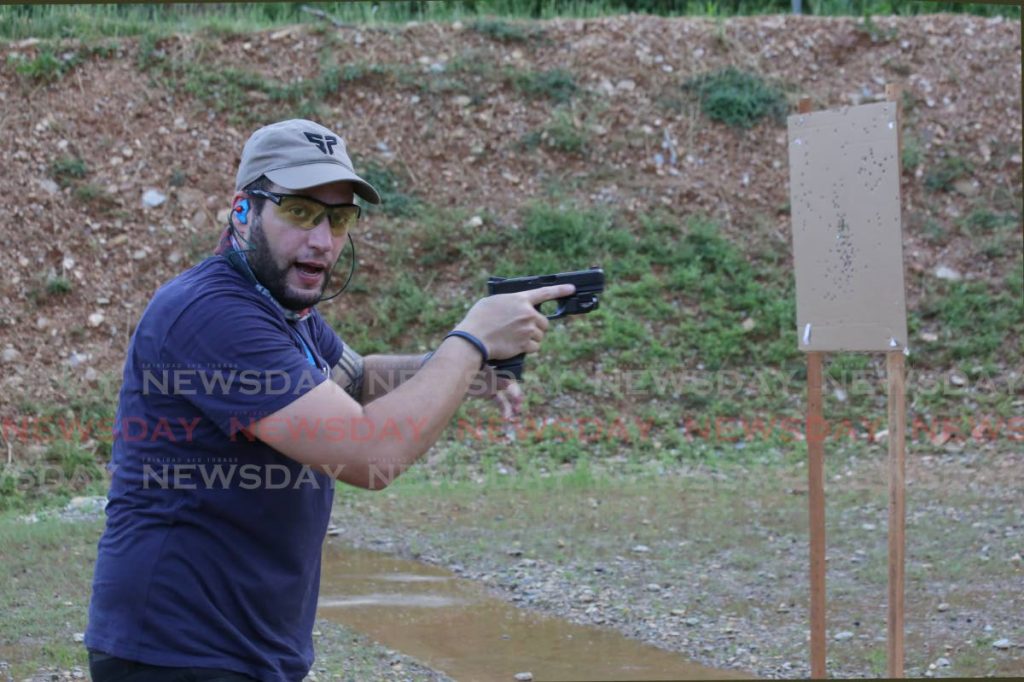
Imagine that you’re walking home one evening when you're approached by a suspicious-looking man matching your pace.
It seems he is about to attack but he doesn't know that you are the owner of a gun. What should you do next?
These are one of hundreds of scenarios firearm user's licence (FUL) holders should be prepared for according to firearms instructor Paul Nahous.
He urged FUL applicants to understand the commitment needed to own and use a gun and to take the responsibility seriously.
In August a newspaper reported that former acting police commissioner Stephen Williams was critical of former police commissioner Gary Griffith's approach to issuing gun licences, describing the trend of people owning up to four guns as "raw craziness."
Nahous was one of the people Griffith called on for support during a press briefing to dispel the notion of semi-automatic weapons ending up in the hands of untrained civilians.
Griffith hit back at Williams, accusing him of taking a more relaxed approach while allowing his personal beliefs about guns to interfere in his duty as commissioner.
It was later reported that retired Rear Admiral Hayden Pritchard and retired Snr Supt Arthur Barrington were looking into the issuing of FULs on behalf of the National Security Council.
On August 14, Commissioner of Prisons Dennis Pulchan shot himself in the right leg by accident while at his quarters on Golden Grove Road, Arouca.
On August 17, head of the Pharmacy Board Andrew Rahaman accidentally shot himself in the right leg after exercising around the Queen's Park Savannah with two pistols.
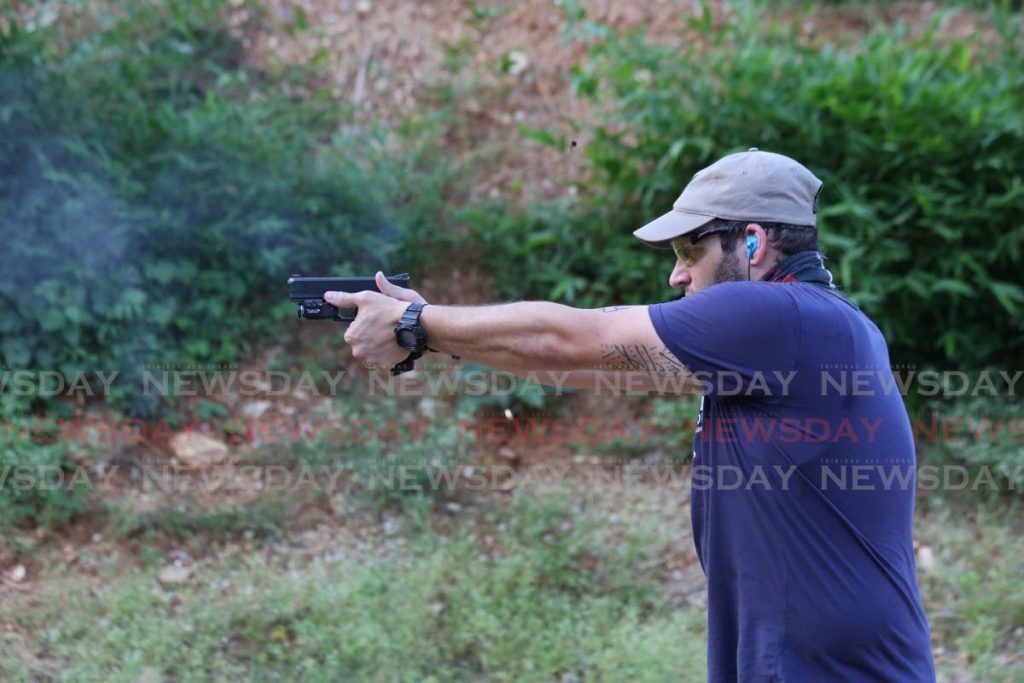
Speaking with Sunday Newsday at the MH Tactical shooting range, Chaguaramas, on Thursday, Nahous said personal protection does not end with owning a gun and stressed that before applying for a licence, people should be prepared make certain changes to their lives to ensure proper use while reducing the possibility of accidents.
Nahous, who has trained in the US and Israel in firearms safety, says it was important for people considering getting guns to understand the responsibilities of owning a weapon.
Once an FUL is issued everything from your social circle to your liming patterns may have to change for the sake of safety and compliance with the law.
“People may have to dress differently to keep their firearm concealed, depending on the size of it.
“It is illegal to be intoxicated with a firearm, so if you have a firearm on you all the time, your nights of going to a bar and getting drunk will be cut short now, because your life is going to be different.
“(If there is) anyone who you have around that you do not trust to know you have a gun on you, you should probably revisit your friends list now.
“It’s a huge responsibility, and you have to decide if you want that responsibility or not before you apply not when your provisional comes through, or your FUL comes through, because then you’re wasting the police time.”
In December 2017, a former acting assistant commissioner of police left his licensed pistol in a car which was broken into and stolen.
It's for this reason Nahous says a gun should be kept in the owner's holster even while driving, and warned against leaving them in a car even briefly.
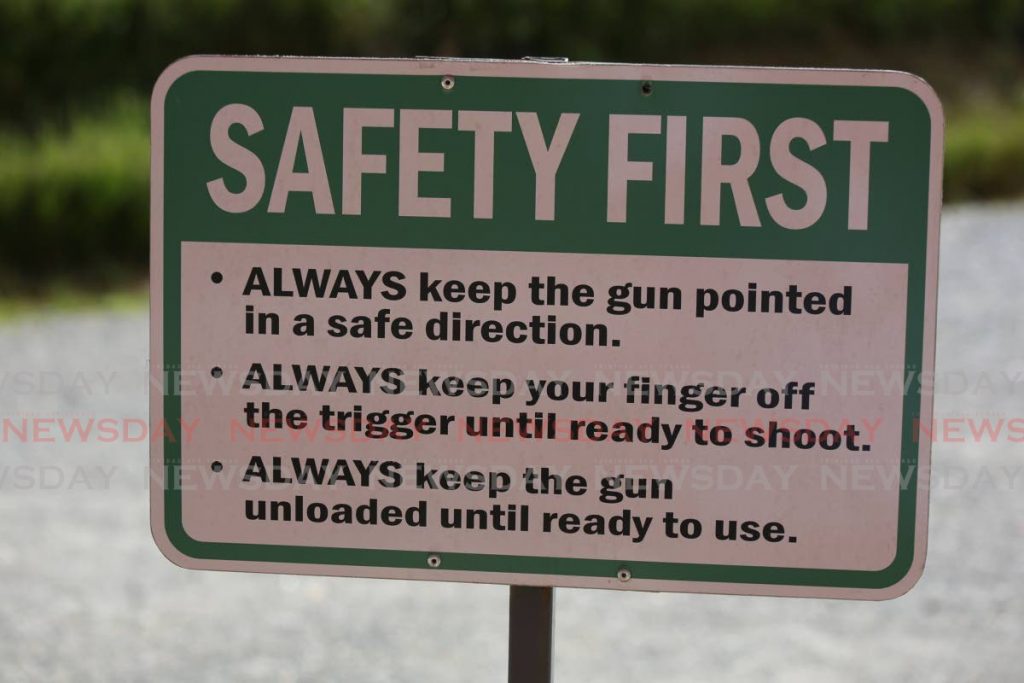
Most shootings and robberies happen within a matter of seconds, as the criminals are eager to get away as quickly as possible. That, together with the fast pace of the situation, together with the adrenaline coursing through the veins of both criminal and victim, means an equally quick fight-or-flight response is needed.
While most people have never been in a situation where they have had to use a gun to defend themselves, Nahous says it is crucial for FUL holders to have as much training as possible to develop the muscle memory to act.
This is important, as it can also reduce the chances of passers-by being shot in the process.
“We are human beings but we’re wired as animals, so if there is a threat, we go into tunnel vision and focus only on the threat. The only things that helps you be aware of what is going on is proper training.
“One of the four basic rules of firearms safety is to be sure of what you’re shooting and what is beyond your target.
“If someone is attacking you in your own house and you point your gun at them and your child’s room is behind them and it’s a gypsum wall, every round you miss can go to your child.
“If an attacker is standing in front of me and there’s someone standing behind that person, I’m putting the person in the background in danger. However, I can just step to the side. I have taken that person out of the danger zone.
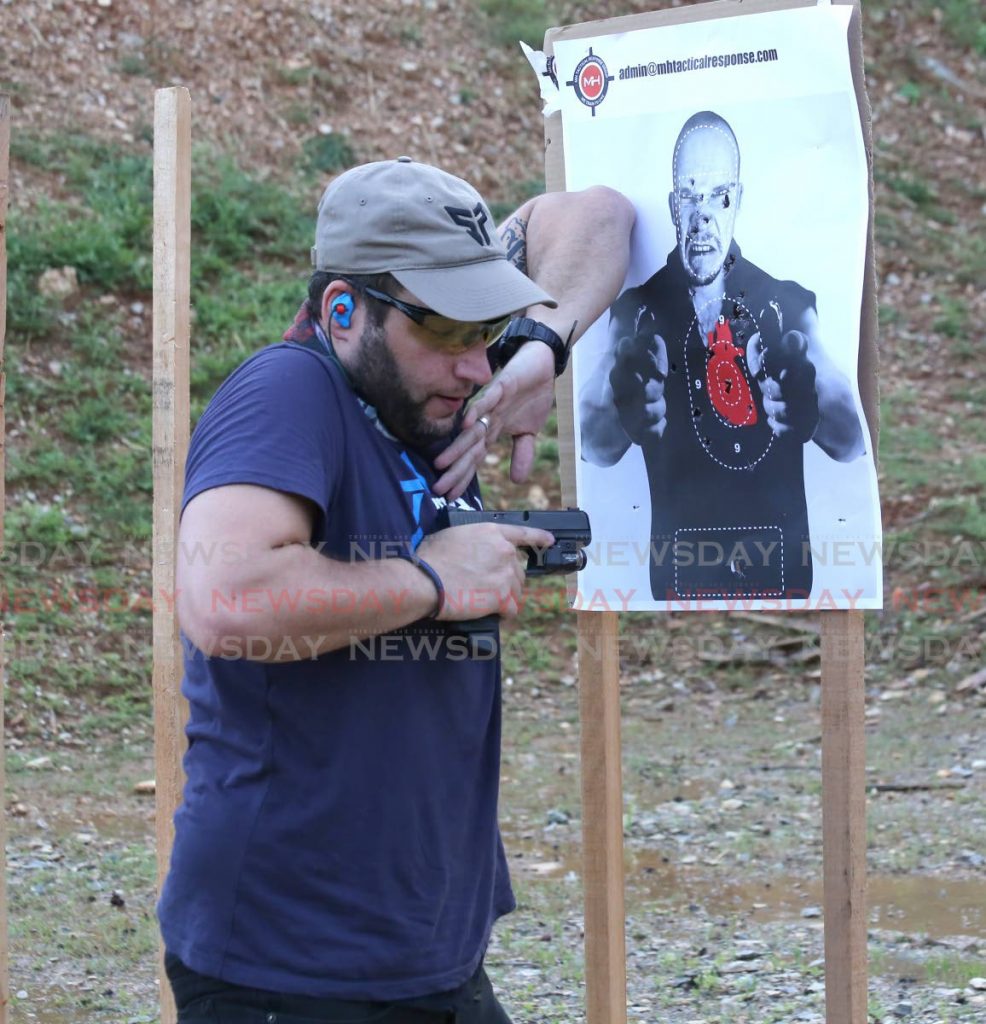
"So always be aware of not just your threat but what’s around your threat which is something you need training for.”
While this training can make the difference between life and death, Nahous insists the best policy is to avoid confrontation as much as possible.
He says there have been instances where inexperienced people have taken to social media to “show off” their new weapons, a practice that can have fatal consequences.
“Unless you’re a licensed firearm retailer, then you should not be marketing yourself as someone who has a gun on them, because now you’ve given up the second most important thing in terms of defending yourself, which is the element of surprise.
“If you have criminals looking at you as someone who has a firearm, then your entire training has to change now, because you have to assume that person knows you have a firearm on you.
“Leave Instagram for your food pictures and so on.”
Outside of a change in behaviour and attitudes, Nahous says FUL applicants should also be prepared to invest in proper training, containment equipment and storage facilities to keep weapons when they’re not in use.
He says while a Glock pistol typically costs between $7,000 and $8,000, gun owners should not try to cut corners and seek a cheaper alternative for a holster, as this could mean the difference between being killed or maimed by negligent discharge.
In terms of a proper safe, Nahous says the more features the better, which may also include a fingerprint scanner to protect the gun.
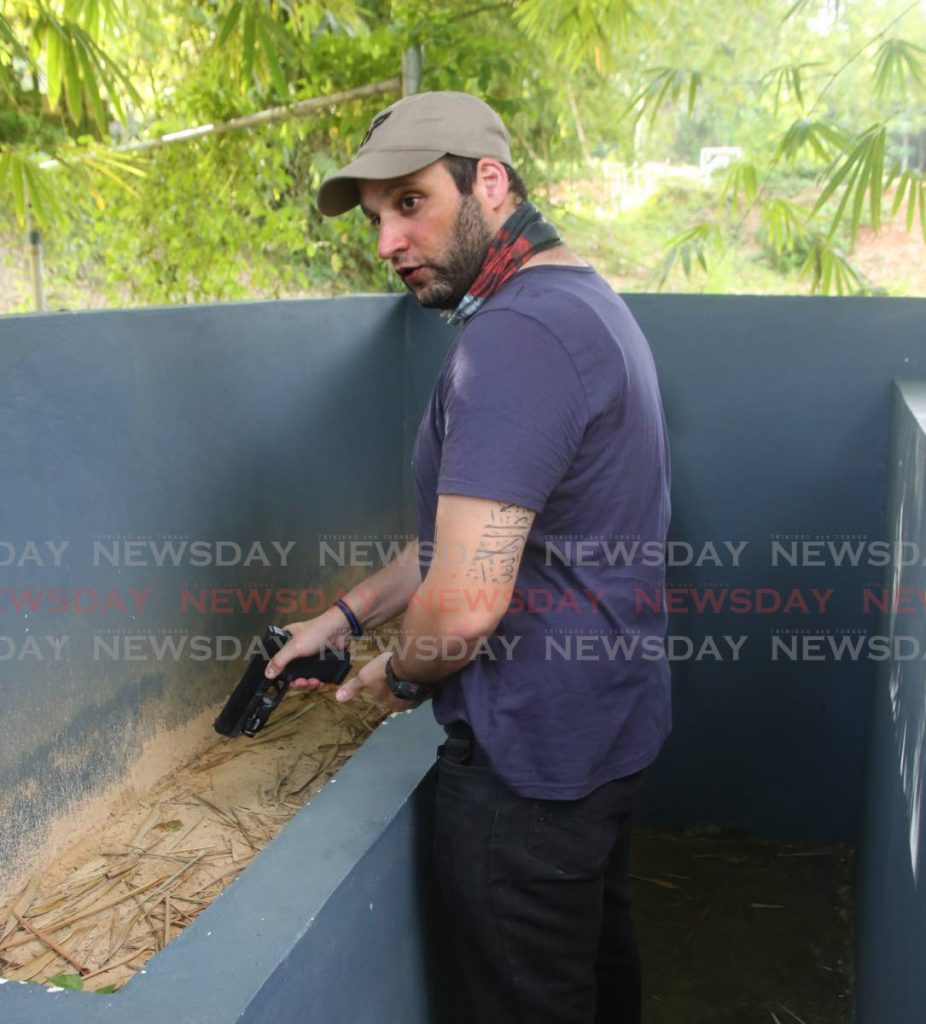
While some may look at these costs and be sceptical, Nahous insists gun owners had a legal and personal responsibility to keep their weapon safe.
“When you’re getting a firearm, it’s an investment. If you want to protect yourself, you need to invest money into the gun, money in the ammunition and time for training.
“A gun isn’t a toy. It’s a tool you have to invest in. If you have a car, you would have to maintain it, service it, change the tyres. For a car people have to build a garage. You also need a safe space for your gun.”
Referring to instances where people may own more than one gun, Nahous says they can be lodged in police stations if the owners do not have proper storage for them at home.
With these considerations in mind, Nahous hopes more people can understand what is required and think carefully about the responsibility of gun ownership before applying for an FUL.

Comments
"Expert urges public: Take care – guns aren’t toys"